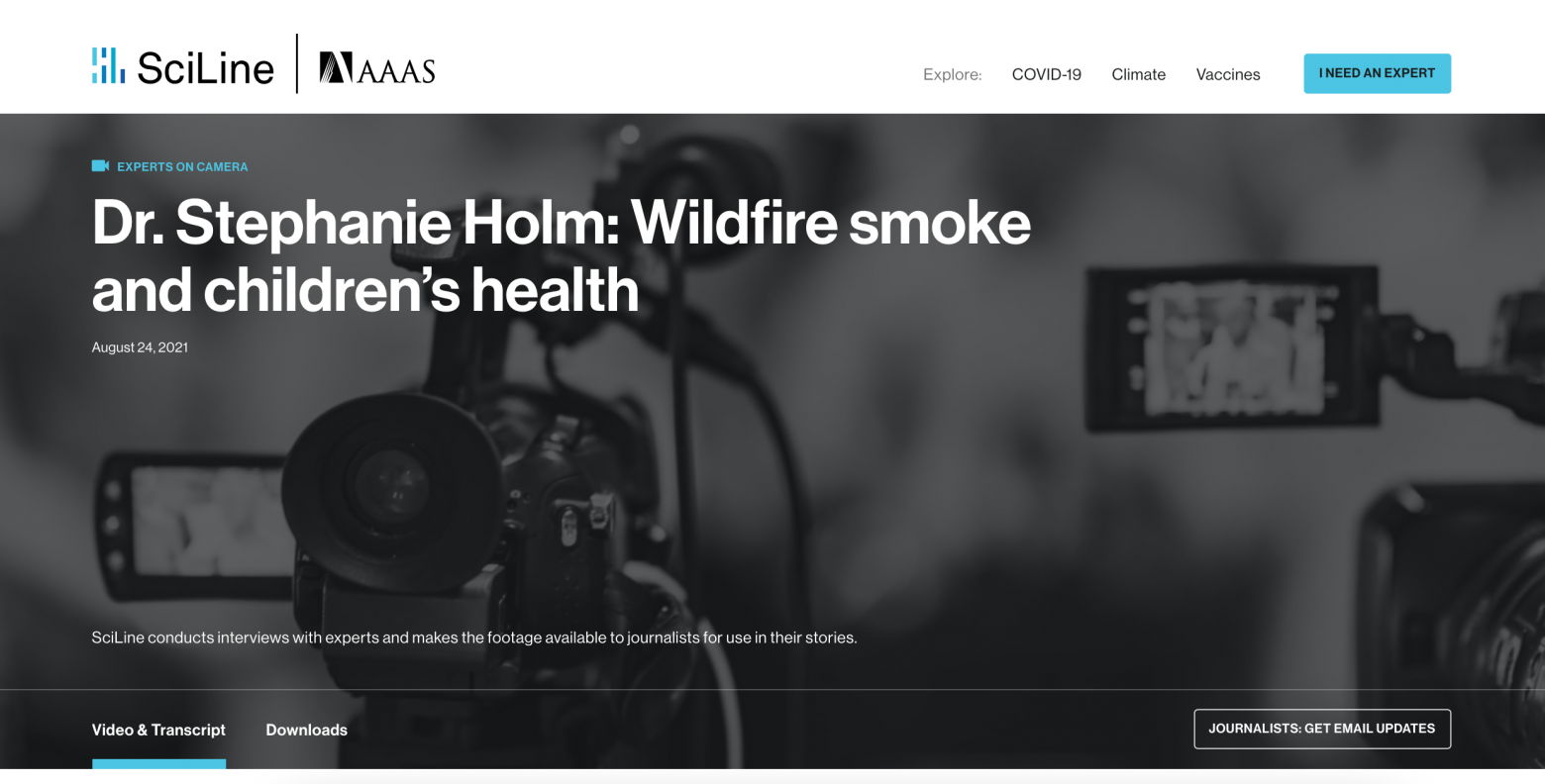
For this segment of "Experts on Camera," the third I worked on, I did everything from deciding on a topic to editing the videos together. (Screenshot courtesy of SciLine/ https://www.sciline.org/wildfires/smoke-childrens-health/)

For this segment of "Experts on Camera," the third I worked on, I did everything from deciding on a topic to editing the videos together. (Screenshot courtesy of SciLine/ https://www.sciline.org/wildfires/smoke-childrens-health/)
My sophomore year, GW offered a new course––Science Reporting with Lisa Palmer. I had never heard of this type of reporting before, but I assumed it would be a perfect intersection for me. I was right. From day one I knew this was the field I wanted to be in––I left wanting to find a science communications job more than anything. The summer before my senior year I came across AAAS––the American Association for the Advancement of Science––and scored a position as a summer communications intern at a branch within AAAS called SciLine.
The internship was nothing less than incredible––I was thrust right into the swing of things as soon as my first day started. That first week, I shadowed a segment that would become the largest part of my internship, “Experts on Camera”––one-on-one broadcast quality interviews that we arranged between scientists and reporters in order to facilitate conversation and increase availability. We decide on an overarching theme and three subtopics for that month’s round of “EoC,” as we called it, and then go searching for experts to contact. If they accept our invitation to participate, we schedule a 90 minute window, and the reporters simply sign up for a 15 minute slot. On the day of, we jump into a set of questions we come up with for a general video that will be edited and posted on the website for those who couldn’t attend.
My first round of “EoC,” I edited one of the three videos. The second round, I edited all three videos, as well as helped brainstorm topics and assisted in finding experts. My third round though, I did everything, from deciding on a whole topic and subtopics to finding experts, pitching them to our team, contacting them, writing all promotional material and general video questions, interviewing them, and editing the videos together.
The biggest challenge that I experienced was that many people didn’t respond, so we always had to be prepared––backups had to be ready to go at all times. For one segment, we went from zero reporters signed up to all four slots being filled in less than 12 hours. It was nerve-wracking, but it was the most rewarding process I’ve ever experienced. I watched myself go from a shadow to successfully leading a whole “EoC” round myself. I can go look at my segments about climate change––specifically species extinction, children’s health effects of wildfire smoke, and agricultural yields––and know that I am the reason they exist and can be reported on more effectively.